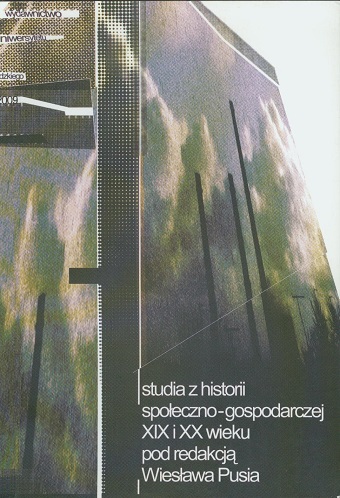Social and cultural life in Łódź from 1870 to 1914
DOI:
https://doi.org/10.18778/2080-8313.06.04Abstract
Social and cultural life of the Łódź society was paralyzed with numbness and stagnation almost by the whole 19th century. It resulted partly from the peculiar conditions which Łódź must have functioned in under the oppression of the invader and partly because of the industrial and multinational character of the city. Workers presented the biggest percentage of the whole society, that was nearly 70%, whereas intellectuals merely 5%, and although they were considerably in duty bound to be culturally active, they, in fact, stayed passive in this respect till the end of the 19th century. So, social life in Łódź in the 19th century was carried on around tap-rooms, caf́es and various dance halls. Theatre as well as musical concerts, as superior forms of culture, were used by the small number of the Łódź society, especially by the intellectuals or middle-class people. Not much culturally fastidious Łódź society found greater pleasure in entertainment connected with the elements of circus, theatre of wonders and museum of interesting details. Cabaret performances and cinematography are also worth mentioning because they both gained particular recognition among the inhabitants of the Łódź city. Numerous balls, social dancing evenings, receptions, bazaars, etc. created an opening for social meetings as well as showing yourself as a philanthropist or a charitable person.
The process of making the Łódź society more culturally aware had been reaching the city very slowly, that’s why social meetings with the representatives of other nations had occurred rather impossible still for a long time. So, the world of capital and widely comprehended businesses was the only area of communication among the multinational Łódź society.
Downloads
Published
How to Cite
Issue
Section
License

This work is licensed under a Creative Commons Attribution-NonCommercial-NoDerivatives 4.0 International License.









